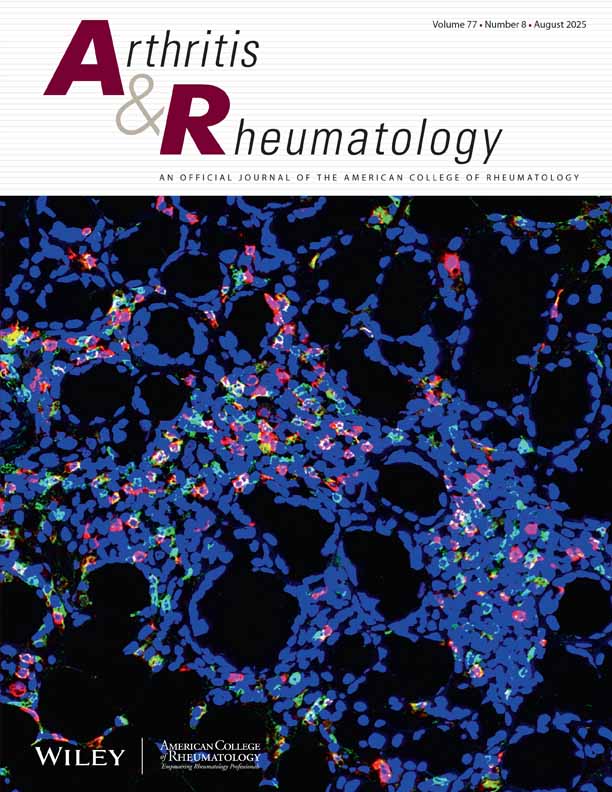Low levels of somatomedin C in patients with the fibromyalgia syndrome. A possible link between sleep and muscle pain
Abstract
Objective. Fibromyalgia is a common syndrome of musculoskeletal pain and fatigue. Lacking distinctive tissue or laboratory correlations, it has often been considered a form of “psychogenic rheumatism.” In the present study, the notion that the stage-4 sleep anomaly typically seen in the fibromyalgia syndrome may disrupt growth hormone secretion was tested. Because growth hormone has a very short half-life, serum levels of somatomedin C were measured; somatomedin C is the major mediator of growth hormone's anabolic actions and is a prerequisite for normal muscle homeostasis.
Methods. Serum levels of somatomedin C were measured in 70 female fibromyalgia patients and 55 healthy controls, using a peptide-specific radioimmunoassay.
Results. Significantly lower levels of somatomedin C were observed in the fibromyalgia patients compared with controls (mean ± SD 124.7 ± 47 ng/ml versus 175.2 ± 60 ng/ml; P = 0.000001). These results could not be explained by concomitant therapy or by weight, and in a subset of 21 patients in whom this was investigated, there was no correlation with various indices of disease activity.
Conclusion. These findings indicate that there is a distinctive disruption of the growth hormone-somatomedin C neuroendocrine axis in a majority of fibromyalgia patients. It is hypothesized that this abnormality may explain the link between disturbed sleep and predisposition to muscle pain.




